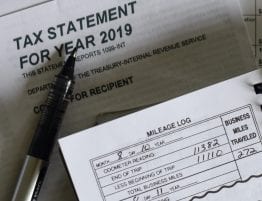
Employers can defer the deposit and payments of their (the employer’s) share of Social Security taxes under The Coronavirus, Aid, Relief and Economic Security Act (CARES Act). The self-employed can also defer payment of certain self-employment taxes under the CARES Act.
Before employers and the self-employed begin to defer certain taxes, it’s important to know the duration for which the tax deferral is applicable and which employers are eligible to defer deposit and payments.
If an employer is not eligible and uses this relief to defer deposit and payment, it will attract penalties for failure to deposit and pay.
Bloomberg Tax talks about the key factors of the deferral to help you benefit the most from it without risking penalties. You may also go through the IRS FAQs to know more about this tax deferral.
“Section 2302 of the CARES Act (Public Law 116-136) allows all employers to defer the deposit and payment of the employer’s portion of Social Security taxes for a minimum of 12 months and, for some deferrals, a period of more than 32 months. Despite the confusion among some advisers, unlike the employee retention tax credit available under the CARES Act, this opportunity to defer employer Social Security taxes is even available for those employers applying for Small Business Administration loans, as explained below.
Compared to the other provisions of the CARES Act impacting Subtitle C payroll taxes, the deferral rules are fairly straightforward. Nevertheless, confusion has arisen with respect to the payroll tax rules, including their:
- Interaction with SBA loans
- Possible penalties for failure to deposit
- Personal liability for executives and board members for unpaid deferred taxes
- Interaction with the leave and employee retention credits
- How to report the deferred taxes to the Internal Revenue Service
To address some of these areas of confusion, the IRS issued FAQs on April 10, 2020, with primary focus on the interaction with SBA loans.
The Basics
The Federal Insurance Contributions Act (FICA) imposes two significant payroll taxes: Social Security taxes and Medicare taxes. Social Security taxes are the most significant and largest component of FICA taxes as they are imposed at the rate of 6.2% of the wages paid up to the taxable wage base, which is $137,700 for 2020. While these Social Security taxes may be deferred under the CARES Act, the employer Medicare taxes cannot be deferred.
The payroll tax deferral period offered under the CARES Act applies to deposits and payments of the employer’s share of Social Security tax that would otherwise be required to be made during the period beginning on March 27, 2020, and ending Dec. 31, 2020. Instead of their normal next-day deposit or semi-weekly deposit due dates, these deferred Social Security taxes have deferred statutory deposit payment dates. 50% of the Social Security deferred taxes must be deposited on Dec. 31, 2021, and the remaining 50% must be deposited on Dec. 31, 2022–all without the imposition of statutory interest. These extended deposit dates are referred to by the CARES Act and IRS guidance as the ‘applicable dates.’
Who Can Defer ‘Social Security’ Taxes?
When the subject of Social Security taxes is raised, most employers and advisors think only of the employer Social Security taxes that are imposed under tax code” Section 3111(a). The tax code actually imposes several types of ‘social security’ taxes. Different but comparable taxes to the Social Security taxes are imposed upon railroads (i.e., RRTA taxes) and self-employed individuals (i.e., SECA taxes) for which the Social Security components are granted the same deferral opportunities by the CARES Act.
All employers, including self-employed individuals such as partners who pay SECA taxes as part of their quarterly estimated tax liabilities, can take advantage of these payroll tax deferral rules. Employers are not required to make a special election to take advantage of these generous deferred deposits and payments of the employer Social Security taxes.
SBA Loans and Payroll Tax Deferrals
Tens of thousands of employers are seeking Section 7(a) loans or Paycheck Protection Program loans from the SBA. Despite fairly clear statutory language from Congress, some advisors have counseled that an employer applying for and receiving a PPP loan are ineligible for the payroll tax deferrals. That position is incorrect–all employers may defer the deposit and payment of the employer’s share of Social Security tax, even those receiving PPP loans from the SBA.
The misinterpretation arises from Section 2202(a)(3) of the CARES Act, which admittedly contains an important rule addressing the interaction of the employer payroll tax deferrals and the PPP loans. Section 2202(a)(3) provides that employers that receive an SBA loan, as provided in section 1102 of the CARES Act, may not defer the deposit and payment of the employer’s share of Social Security tax due on or after the date that the PPP loan is forgiven.
This language clearly does not prevent an employer from benefiting under both statutory provisions. Instead, it means that employers that receive a PPP loan may not defer the deposit and payment of the employer’s share of Social Security tax that is otherwise due after the employer receives a decision from the lender that the loan has been forgiven. More specifically, employers who have received a PPP loan, but whose loan has not yet been forgiven, may continue to defer deposits and payment of the employer’s share of Social Security tax through the date the lender issues a decision to forgive the loan in accordance with paragraph (g) of section 1106 of the CARES Act.
In plain English, once the employer receives a decision from its lender that its PPP loan is forgiven, the employer is no longer eligible to defer the deposit and payment of the employer’s share of Social Security tax due after that date. However, the amount of the deposit and payment of the employer’s share of Social Security tax that was deferred through the date that the PPP loan is forgiven continues to be deferred and will be due on the applicable due dates in 2021 and 2022.
Penalties and Penalty Relief
Three potential payroll deferral penalties exist that can be traps for the uninformed, but are very easily avoided while still fully benefiting from the CARES Act’s generous payroll tax deferrals.
Payroll Tax Deposit Penalty
The deferred deposits of the employer’s share of Social Security tax must be deposited on the applicable dates in 2021 and 2022. If the taxes are deposited after those dates, they will be late deposits subject to late deposit penalties under” Section 6656” with varying liability amounts ranging from 2% up to 15% of the late deposit amount, with the typical deposit penalty being 10%. Late deposit penalties can be waived for reasonable cause–although reasonable cause may be difficult to assert given the generous deferrals of 12 to 32 months.
Failure to Pay Penalty
Although the primary penalty in the context of the deferred deposits is likely to be the failure to deposit penalty,” Section 6651” imposes a failure to pay penalty that can equal up to 25% of the employer’s share of Social Security taxes. If the deferred taxes are not paid by the applicable due date, the IRS can theoretically seek enforcement through the Section 6651 failure to pay penalty. As with late deposits, the failure to pay penalty can be waived for reasonable cause.”
Fill out the form for a free and confidential consultation.








